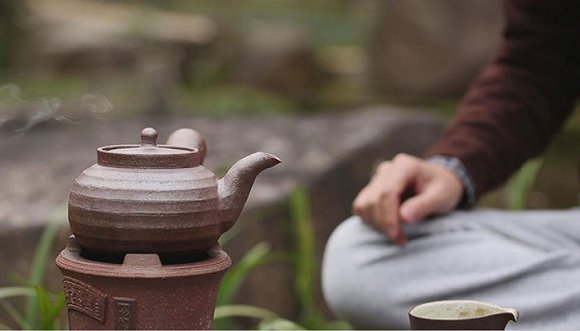Tea and tea culture began from China thousands year ago. When tea entered different countries via the first ancient Grand Silk Road in Han Dynasty to the West and another connection to the East, Korea and Japan, tea integrated in different cultures and influenced the change of lifestyle nicely without impulsing.

In the 12th century, Japanese Zen monk Eisai brought tea seeds and the whisking method Chinese tea ceremony that they learnt in the process of learning Buddhism in the Buddhist temple on Tian Tai Shan in Zhejiang Province back to Japan. The Cha Dao culture has further refined in Japan, the steamed green and whisking method tea ceremony are well preserved and refined further under the Japanese cultural discipline for being perfect.
Meantime in China migrations and expansions of tea plantation continued and more tea types gradually created. With the introduction of more fine quality teas, from steamed-green to wok-fired green and more varieties were born and more various tea types were introduced. Chinese tea ceremony methods gradually changed to loose leaves with gaiwan or small-teapot brewing. What remains same in Chinese culture from all those exciting changes are :
- The “Dao” in Daoism is more than Daoist philosophy or limited to specific forms of exercise, it meant an on-going learning process and one has to his/her own responsibility to find his/her path to move forwards in life.
- Chinese culture is closely linked with the teaching and wisdom from Confucianism, Daoism and Chinese Buddhism. Indeed there are plenty of temples in China, but what’s important in life is not about religion but is about
- How to discipline and strength the inner-self
- How to live by facing self
- How to maintain a peaceful, respectful and harmony relationships in 360 degree, from family, working and society.

In tea, there is I, there is s/he, most importantly there are Us.
Tea reveals wisdom in life, the flavors and tastes in tea reflect the various unexpected things to happen in life. Tea is as life; life is as tea.
For thousands of year the meaning of Chinese tea ceremony maintains the same in Chinese culture that influence the Chinese lifestyle:
- Fun and fine quality pleasure to enjoy in life
- Tea is about taking time to enjoy a moment of peace and tranquility
- Fine and warm friendship that interchange in silence by showing respect each others and self
So far, China is still the homeland for 6+1 tea types. Therefore there are different forms of process to present in the Chinese tea ceremony, despite differences, it again covers ONLY all aspects to enjoy:
- Create a pleasant physical environmental ambiance
- Prepare your mind
- Evaluating the quality of tea
- The color from tea leaves (dried and wet) and tea liquor
- The natural and multiple layer of notes in flavors
- The charming multiple layers of transformation from the taste and after taste
- The number of brewing indicate the quality and strength
- Respectful attitude and good manners in the serving, receiving and tasting tea

Making a cup of tea is easy, simply let’s have a cup of tea!

Leave a Reply
You must be logged in to post a comment.